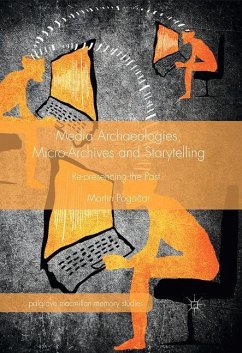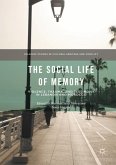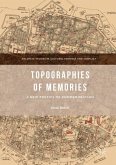This book argues that today we live in the culture of the past that delimits our world and configures our potentialities. It explores how the past invades our presents and investigates the affective uses of the past in the increasingly elusive present. Remembering and forgetting are part of everyday life, popular culture, politics, ideologies and mythologies. In the time of the ubiquitous digital media, the ways individuals and collectivities re-presence their pasts and how they think about the present and the future have undergone significant changes. The book focuses on affective micro-archives of the memories of the socialist Yugoslavia and investigates their construction as part of the media archaeological practices. The author further argues that these affective practices present a way to reassemble the historical and relegitimize individual biographies which disintegrated along with the country in 1991.
Bitte wählen Sie Ihr Anliegen aus.
Rechnungen
Retourenschein anfordern
Bestellstatus
Storno








